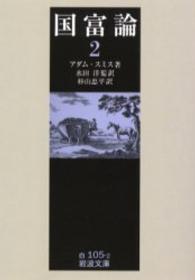- ホーム
- > 洋書
- > 英文書
- > History / World
Full Description
During World War I, thousands of young African men conscripted to fight for France and Britain were captured and held as prisoners of war in Germany, where their stories and songs were recorded and archived by German linguists. In Knowing by Ear, Anette Hoffmann demonstrates that listening to these acoustic recordings as historical sources, rather than linguistic samples, opens up possibilities for new historical perspectives and the formation of alternate archival practices and knowledge production. She foregrounds the archival presence of individual speakers and positions their recorded voices as responses to their experiences of colonialism, war, and the journey from Africa to Europe. By engaging with the recordings alongside written sources, photographs, and artworks depicting the speakers, Hoffmann personalizes speakers from present-day Senegal, Somalia, Togo, and Congo. Knowing by Ear includes transcriptions of numerous recordings of spoken and sung texts, revealing acoustic archives as significant yet under-researched sources for recovering the historical speaking positions of colonized subjects and listen to the acoustic echo of colonial knowledge production.
Contents
Note on Sound Recordings ix
Prologue: Catchers of the Living 1
Fragment 1. Samba Diallo: "The War of the Whites" / "Catcher of the Living"
Introduction: Listening to Acoustic Fragments 11
Fragment II. JÁmafÁda: "The War is Horrible"
1. Abdoulay Niang: Voice, Race, and the Suspension of Communication in Linguistic Recordings 23
Fragment III. Asmani Ben Ahmad: "Once Upon a Time"
2. Mohamed Nur: Traces in Archives, Linguistics Texts, and Museums in Germany 66
Fragment IV. Josef Ntwanumbi: "We are Initiates"
3. Albert Kudjabo and Stephan Bischoff: Mysterious Sounds, Opaque Languages and Otherworldly Voices 101
Fragment V. Mamadou Gregoire: "The Sea Requests Fish from the Rivers"
Afterword: Knowing by Ear 147
Acknowledgments 157
Notes 161
References 183
Index 201






